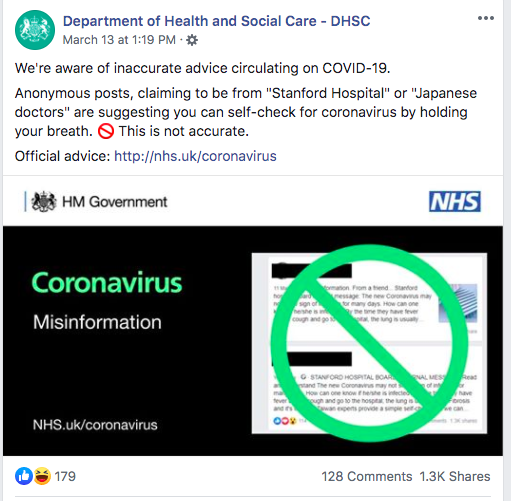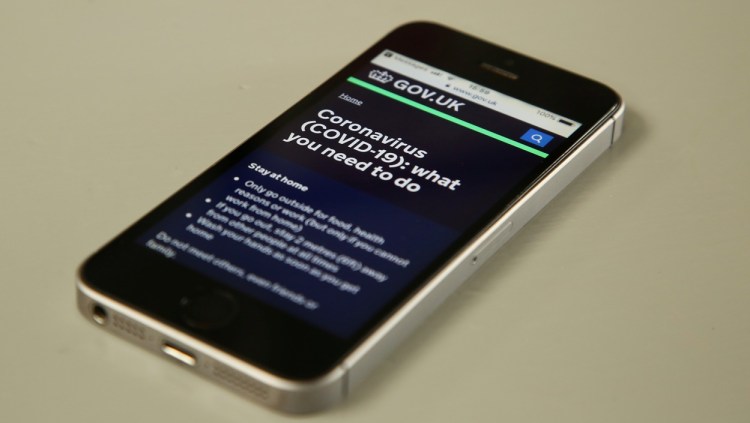The U.K. government has announced new measures to crack down on the spread of false COVID-19 information online, including implementing dedicated specialist units to tackle misinformation.
The new rapid response unit will operate from inside the U.K.’s Cabinet Office and will look at ways to counter “harmful narratives” on the internet — addressing the scourge of “experts” issuing false and harmful misinformation, as well as fraudsters operating phishing scams.
“We need people to follow expert medical advice and stay at home, protect the NHS [National Health Service], and save lives,” U.K. Culture Secretary Oliver Dowden said in a statement. “It is vital that this message hits home and that misinformation and disinformation which undermines it is knocked down quickly.”
Fake news
Disinformation and “fake news” are major blights on 21st-century society, enabled by ubiquitous connectivity that delivers deceptive information directly to people’s pockets 24/7. We’ve already seen how social media can be abused to further political agendas, and over the past few months a similar trend has emerged with the COVID-19 outbreak.
June 5th: The AI Audit in NYC
Join us next week in NYC to engage with top executive leaders, delving into strategies for auditing AI models to ensure fairness, optimal performance, and ethical compliance across diverse organizations. Secure your attendance for this exclusive invite-only event.
Earlier this year, the World Health Organization (WHO) referred to the issue as a massive “infodemic.” The WHO characterized this as an “over-abundance of information — some accurate and some not — that makes it hard for people to find trustworthy sources and reliable guidance when they need it” in a report published in February. In response, social media companies have attempted to separate fact from fiction, with Twitter deleting COVID-19 misinformation that could cause physical harm and Facebook launching a new Messenger hub to highlight ways users can identify false or misleading information about the virus.
Dowden said the U.K. government is working directly with technology companies to step up these efforts.
“We’re working with social media companies, and I’ll be pressing them this week for further action to stem the spread of falsehoods and rumors [that] could cost lives,” he said.
False claims of potential vaccines and far-fetched notions that avoiding cold or spicy foods can help prevent the spread of COVID-19 have been shared widely across social media over the past few months. “Miracle cures” such as rinsing your mouth with a saline solution or drinking bleach have also reared their heads.
The U.K. government said it is already identifying up to 70 incidents each week involving “false narratives” with multiple misleading claims, and its Rapid Response Unit will work to address any false claims that gain traction by issuing rebuttals on social media, asking platforms to remove the offending content, and promoting legitimate public health campaigns through “reliable sources.”

Above: U.K. Department of Health and Social Care issues rebuttal against “self-check” COVID-19 claims.
Today’s announcement comes as U.K. politician Damian Collins, former chair of the Digital, Culture, Media and Sport select committee, called for laws that would make it an offence for people to knowingly share misinformation that could endanger public health.
“For too long there has been a casual acceptance of disinformation as a simple by-product of social media,” Collins told Wired magazine. “The coronavirus crisis tells us this has to change.”


